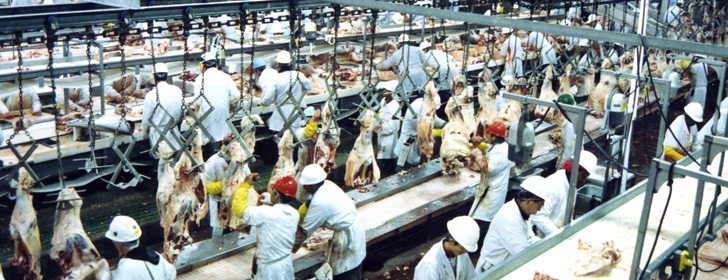Michael Martin went to the Oprah Winfrey Show and lived to tell about it.
Martin, the director of communications for Cargill Inc., shared that experience with producers and industry officials at the Farm Animal Council of Saskatchewan’s recent conference.
“Nothing in my 34 years total of communications prepares you for something like the Oprah Winfrey Show,” he told attendees.
Earlier this year, the food production and marketing company, which harvests millions of cattle every year, opened one of its beef-processing facilities to the talk show’s cameras.
Read Also

Beef cattle more prone to trace mineral deficiencies
The trace mineral status of our cows and calves is a significant challenge for western Canadian producers and veterinarians.
Transparency was a frequent subject of discussion at the Dec. 8 conference in Saskatoon. The message to producers: animal-welfare issues aren’t simply matters to be dealt with internally. Instead, the food industry should be educating others about agriculture and animal-welfare practices.
“We recognize that both consumers and animal activist groups are sort of targeting agriculture and part of being proactive is how do we get our message out,” said Mark Silzer, FACS chair and president of the Canadian Bison Association.
Martin said Cargill’s experience on the show was positive — not that the company hasn’t had issues with bad publicity.
He outlined how, in 2007, nearly two million pounds of Cargill ground beef were recalled. More recalls followed in 2009 due to possible salmonella contamination.
A 2010 Pulitzer Prize was awarded for a New York Times story on a Minnesota woman whose paralysis was linked to E. coli and Cargill.
But when the company was approached for a Minneapolis Star Tribune story, the reporter and photographer were allowed full access to a beef-processing facility in Colorado. And they brought a camera.
A front page story resulted, as did a call from Winfrey’s producers.
Winfrey had a run-in with cattle producers in 1996 following a show addressing BSE, which resulted in a failed lawsuit against the talk show host.
Martin said the company had concerns, but negotiated with the show and, a few months later, allowed Lisa Ling and crew to tour a feedlot and processing facility.
“We knew there was a history,” said Martin. “We knew there would be a risk, but sometimes you have to take that risk.”
The company was the focus of a several-minute long video package and a Cargill representative shared the stage with Winfrey.
The appearance was deemed a success and Martin said the company was able to communicate its message and educate Winfrey’s audience on where their food comes from.
“We want to get the message out there to the public that producers are responsible,” said Silzer.
“They care for their animals. They’re willing to change. We under-s tand the consumer demands around food … and so producers are prepared to work with, ultimately, our customers on animal welfare issues and food safety issues.”















